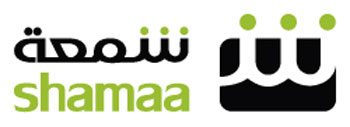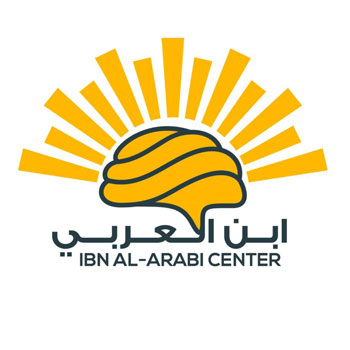فاعلية استخدام السبورة التفاعلية في تنمية الدافعية للتعلم وعلاقتها بمستويات الفهم القرائي من وجهة نظر طلبة الصف الخامس الابتدائي بمحافظة مسقط بسلطنة عمان
DOI:
https://doi.org/10.56989/benkj.v5i1.1309الكلمات المفتاحية:
فهم القراءة، الفهم القرائي ، الدافعية نحو التعلم، اللوح التفاعليالملخص
هدفت هذه الدراسة إلى التعرف على أثر استخدام اللوح التفاعلي في تحفيز الطلبة وعلاقتها بمستويات الفهم القرائي، من منظور طلاب الصف الخامس في محافظة مسقط، سلطنة عمان. سعت الدراسة إلى التعرف على العلاقة بين الدافعية نحو التعلم والفهم القرائي، وكذلك هدفت إلى دراسة تأثير استخدام اللوح التفاعلي على الدافعية نحو التعلم على طلبة الصف الخامس. تم اختيار عينة من 120 طالبًا وطالبة، تم تقسيمهم إلى مجموعتين: مجموعة تجريبية ومجموعة ضابطة، تم اختيارهم عشوائيًا من مدرستين في محافظة مسقط. لم تستخدم المجموعة الضابطة اللوح التفاعلي، بينما كانت المجموعة التجريبية تستخدمها خلال الدراسة.
أظهرت النتائج أن المجموعة التجريبية، التي استخدمت اللوح التفاعلي، أظهرت مستويات دافعية أعلى وارتباطات أقوى مع الفهم القرائي عبر جميع المستويات (المستوى الحرفي، والاستنتاجي، والنقدي، والإبداعي/الانفعالي) مقارنة بالمجموعة الضابطة. على وجه الخصوص، في المجموعة التجريبية، كانتبعد "مسؤولية المتعلم" هو الأكثر ارتباطًا مع الفهم القرائي في المستوى الحرفي (0.707) واستمر في إظهار ارتباطات عالية في المستويين الاستنتاجي والنقدي. تشير هذه النتائج إلى أن استخدام اللوح التفاعلي عزز العلاقة بين الدافعية نحو التعلم والفهم القرائي، خاصة في تعزيز مسؤولية الطلاب، وكفاءتهم الذاتية، ومثابرتهم في التعلم.
كما أبرزت الدراسة فروقًا كبيرة بين المجموعتين الضابطة والتجريبية عبر أبعاد الدافعية نحو التعلم الأربعة. أظهرت المجموعة التجريبية درجات أعلى في المثابرة والجدية، وقيمة وفائدة التعلم، ومسؤولية المتعلم، والكفاءة الذاتية، مما يشير إلى أن استخدام اللوح التفاعلي أثر بشكل إيجابي على أبعاد الدافعية نحو التعلم. تؤكد هذه النتائج على إمكانات اللوح التفاعلي كأداة فعالة لتحسين التحفيز والفهم القرائي في الفصول الدراسية، مما يشير إلى أن اللوح التفاعلي يلعب دورًا حاسمًا في تعزيز مشاركة الطلاب وأدائهم الأكاديمي.
This research examined the effectiveness of using interactive whiteboards (IWBs) on learning motivation and its relationship with reading comprehension levels, from the perspective of fifth-grade students in Muscat Governorate, Sultanate of Oman. The study aimed to (1) investigate whether learning motivation affects reading comprehension, and (2) determine the impact of IWBs on learning motivation among fifth-grade students. A sample of 120 students, divided into control and experimental groups, was selected from two randomly chosen schools in Muscat Governorate. The control group did not use the interactive whiteboard, while the experimental group had access to it during the study.
The results show that the experimental group, which used IWBs, exhibited significantly higher motivation levels and stronger correlations with reading comprehension across all levels (Literal, Inferential, Critical, and Appreciative/Creative) when compared to the control group. Notably, in the experimental group, the "Responsibility of the Learner" dimension had the strongest correlation with reading comprehension at the Literal level (0.707) and continued to show high correlations at the Inferential and Critical levels. These results suggest that the IWB enhanced the relationship between motivation and reading comprehension, particularly in fostering students’ responsibility, self-efficacy, and persistence in learning.
The research also highlighted significant differences between the control and experimental groups across four motivational dimensions. The experimental group showed higher scores in Persistence and Seriousness, Value and Benefit of Learning, Responsibility of the Learner, and Self-efficacy, indicating that IWBs positively influenced these motivational aspects. These findings underline the potential of IWBs as an effective tool for improving both motivation and reading comprehension in the classroom, suggesting that IWBs play a critical role in enhancing students' engagement and academic performance.
المقاييس
المراجع
Zinati, M. (2021). The Use of Modern Technologies in Teaching Arabic. Journal of Humanities and Natural Sciences, 2(4), pp. 635-643.
Abu Nahla, D. (2018). The Use of the Interactive Whiteboard in Creative Thinking in Mathematics for Eighth-Grade Female Students in Jordan. Published Master's Thesis.
Al-Bajeh, A., H. (2017). The Foundations of Teaching Arabic: Between Theory and Practice in the Upper Basic Stage. Jordan: Dar Al-Fikr for Printing, Publishing, and Distribution.
Al-Barakat, A.,A. (2010). The Effectiveness of a Training Program Based on the Story Strategy in Developing Reading Comprehension in Third-Grade Students and Their Attitudes Toward It. Journal of Umm Al-Qura University for Educational and Psychological Sciences, Saudi Arabia, 2(11), pp. 391-451.
Al-Tall, S. (2019). The Impact of Reading Pictures, Reading Level, and Gender on Reading Comprehension Among Eighth-Grade Students. Yarmouk Research Journal, 7(4), pp. 10-42.
Thabit, S. (2017). The Effect of Using Interactive Whiteboards on Third-Grade Female Students in Science and Their Motivation to Learn in Nablus. Unpublished Master's Thesis, An-Najah National University.
Abdul-H., M. (2019). The Effectiveness of Using Digital Stories in Developing Oral Reading Skills in Arabic for Second-Grade Students and Their Motivation Toward It. College of Education, Middle East University.
Al-Alwan, A., F. & Al-Tall, S., A. (2010). The Impact of the Purpose of Reading on Comprehension. Journal of Damascus University, 26(3), pp. 367-404.
Al-Anzi, L. (2021). The Effect of Using Interactive Whiteboards on Improving Writing Skills for Learning Disability Students and Their Attitudes. Published Study on the website: Lubna85anazey@gmail.co.
Al-Qulaini, At. (2017). The Effectiveness of a Proposed Program to Develop Reading Comprehension and Writing Expression Skills for Fifth-Grade Students. Unpublished PhD Thesis, Faculty of Education, Menoufia University, Egypt.
Al-Muthani, A., M. (2018). The Effect of Independent Learning and Reading Ability on Reading Comprehension. Unpublished Master's Thesis, Faculty of Education, Yarmouk University, Jordan.
Al-Muhassina, M., S. (2023). Motivation Theories. Published Article on the website: https://al3loom.com/.
Nasr, Hamdan. (2009). The Effect of Accompanying Writing and Speaking Activities on Developing Some Critical Reading Skills. Arab Journal of Education, Tunisia, 16(1), pp. 650-694.
Ministry of Education. (2018). Language Performance Development Committee Study (First Edition). Sultanate of Oman.
Ministry of Education. (2005). Reading Weakness in the First Cycle of Basic Education in the Sultanate of Oman. Sultanate of Oman.
Clay, M. (1991). Becoming Literate: The construction of control.
Asvio et al. (2017). The Influence of Learning Motivation and Learning Environment on Undergraduate Students’ Learning Achievement of Management of Islamic Education, Study Program of Iain Batusangkar in 2016. Noble International Journal of Social Sciences Research, 2(2), P 16-31.
Barrett, T.C. (1979). A Taxonomy of reading comprehension. In R.F Smith & T. C. Barrett, Teaching Reading in the Middle Grades. Addison-Wesley Publishing Company.
Bruce,M.&Robinson, G.(1996). A metacognitive program form proving the word identification and reading comprehension skills of upper primary poor readers. Paper presented at the E AARE joint.
Coates, J., Harris, J., & Waring, M. (2020). The effectiveness of a special school experience for improving preservice teachers’ efficacy to teach children with special educational needs and disabilities. British Educational Research Journal, 46(5), 909-928.
Hidayatullah, Muhammad (2022) The Effect of Educational Interaction on Motivation in Learning Arabic Among Third Grade Students at Al-Falah Islamic Primary School in Bat. Master's thesis, Universitas Islam Negeri Maulana Malik Ibrahim.
التنزيلات
منشور
كيفية الاقتباس
إصدار
القسم
الرخصة
الحقوق الفكرية (c) 2024 مجلة ابن خلدون للدراسات والأبحاث

هذا العمل مرخص بموجب Creative Commons Attribution-NonCommercial 4.0 International License.































 ElDjawda Soft
ElDjawda Soft